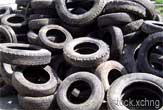Studies Highlight Top Sources of Pollution

Get the world’s most fascinating discoveries delivered straight to your inbox.
You are now subscribed
Your newsletter sign-up was successful
Want to add more newsletters?

Delivered Daily
Daily Newsletter
Sign up for the latest discoveries, groundbreaking research and fascinating breakthroughs that impact you and the wider world direct to your inbox.

Once a week
Life's Little Mysteries
Feed your curiosity with an exclusive mystery every week, solved with science and delivered direct to your inbox before it's seen anywhere else.

Once a week
How It Works
Sign up to our free science & technology newsletter for your weekly fix of fascinating articles, quick quizzes, amazing images, and more

Delivered daily
Space.com Newsletter
Breaking space news, the latest updates on rocket launches, skywatching events and more!

Once a month
Watch This Space
Sign up to our monthly entertainment newsletter to keep up with all our coverage of the latest sci-fi and space movies, tv shows, games and books.

Once a week
Night Sky This Week
Discover this week's must-see night sky events, moon phases, and stunning astrophotos. Sign up for our skywatching newsletter and explore the universe with us!
Join the club
Get full access to premium articles, exclusive features and a growing list of member rewards.
From melting ice caps to acid rain, most environmental damage is caused by a very short list of consumer products.
A new study finds that 70 to 80% of all environmental degradation comes from three major categories of goods: transportation, food and home energy use.
The finding is based on eleven studies in a special edition of the Yale Journal of Industrial Ecology, which looked at the environmental impact of major product groups. The studies varied in design and methodology, but their lists of culprits were similar.
The top three biggest polluters, according to the study:
- Transportation, especially cars and planes
- Food production, meat and dairy in particular--was another.
- Energy production for heating, cooling and running household appliances
The idea of looking at products rather than risks reflects a new approach to environmental policy that seems to be gaining traction in Europe and may be on the horizon here.
"Rather than just regulating risks like pollution from a smokestack for example, people are asking whether we could get better leverage by also using products as a basis for environmental policies," said the journal's editor-in-chief, Reid Lifset.
This approach takes into account the entire lifecycle of a product, looking at its manufacture, use and disposal. It considers, for example, how a car is produced and from which materials, how much it pollutes during its lifetime, and, when it has finally guzzled its last tank of gas, how it is disposed.
Get the world’s most fascinating discoveries delivered straight to your inbox.
Proponents of product-based policy say it allows consumers to make choices based on the environmental impact of a given product, and envision a labeling system that would denote the "green-ness" of goods.
Some experts question whether such measures could ever really take off, though. Thomas Kinneman, an associate professor of economics at Bucknell University who was not involved in the studies, said labeling is only effective if consumers are willing to pay the extra money that more environmentally friendly products cost. It's doubtful, he said, that product-based assessments will translate to legislative measures, at least in the next year, unless they are backed by financial incentives, such as imposing a tax for the disposal of environmentally damaging household items.
Whatever policy results, the report provides new insight into the environmental consequences of consumer habits. "The research findings reported in the special issue are important because they help pinpoint the most problematic types of consumption, which include activities that are now commonplace in our lives such as air transport," said Gus Speth, dean of the Yale School of Forestry & Environmental Studies. "That should lead to clearer priorities and better decisions."
- Power of the Future: 10 Ways to Run the 21st Century
- Top 10: Emerging Environmental Technologies
- Multimedia: Goldilocks and the Greenhouse
- Top 10 Ways to Destroy Earth
 Live Science Plus
Live Science Plus










